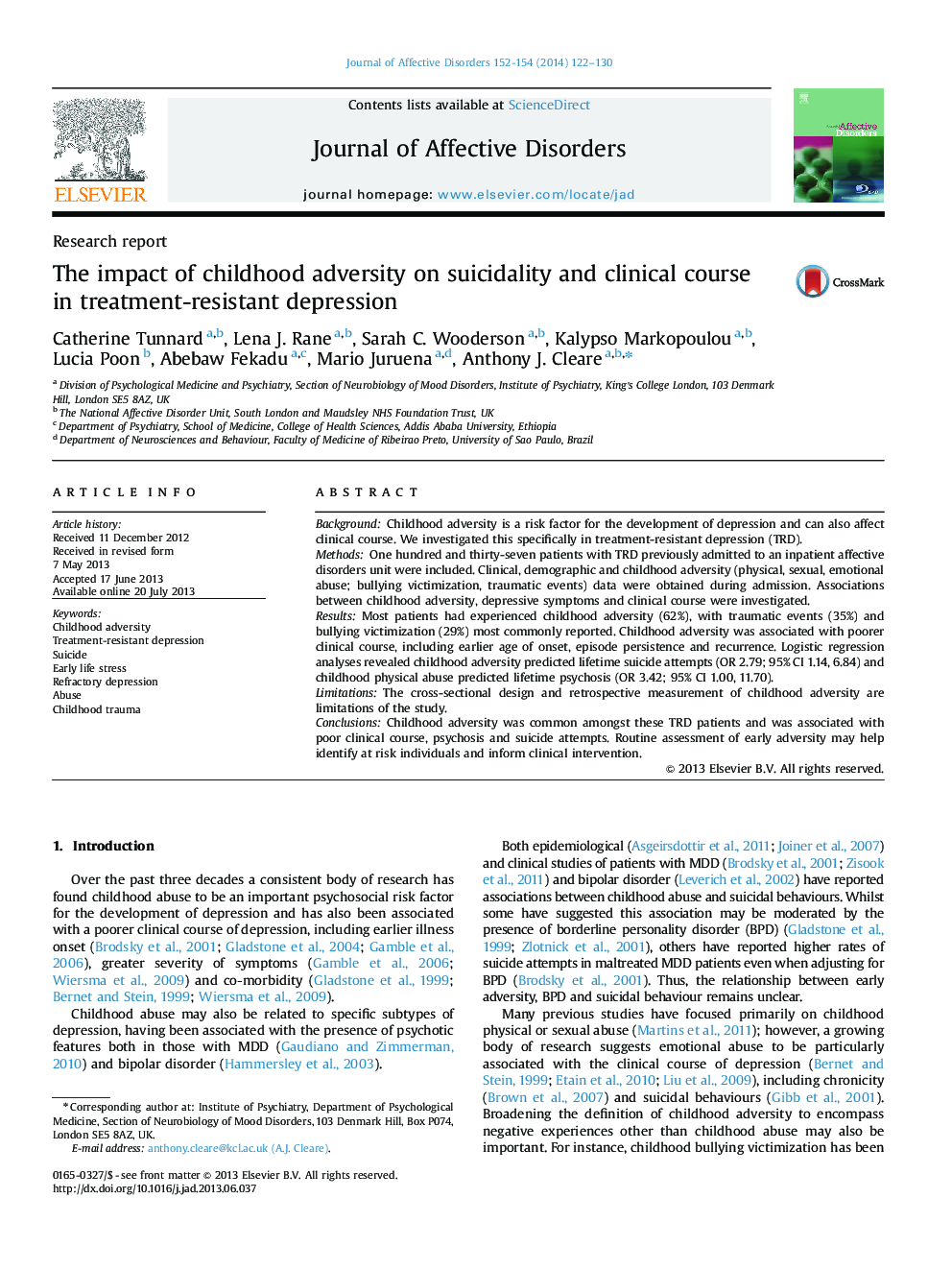| Article ID | Journal | Published Year | Pages | File Type |
|---|---|---|---|---|
| 6233117 | Journal of Affective Disorders | 2014 | 9 Pages |
BackgroundChildhood adversity is a risk factor for the development of depression and can also affect clinical course. We investigated this specifically in treatment-resistant depression (TRD).MethodsOne hundred and thirty-seven patients with TRD previously admitted to an inpatient affective disorders unit were included. Clinical, demographic and childhood adversity (physical, sexual, emotional abuse; bullying victimization, traumatic events) data were obtained during admission. Associations between childhood adversity, depressive symptoms and clinical course were investigated.ResultsMost patients had experienced childhood adversity (62%), with traumatic events (35%) and bullying victimization (29%) most commonly reported. Childhood adversity was associated with poorer clinical course, including earlier age of onset, episode persistence and recurrence. Logistic regression analyses revealed childhood adversity predicted lifetime suicide attempts (OR 2.79; 95% CI 1.14, 6.84) and childhood physical abuse predicted lifetime psychosis (OR 3.42; 95% CI 1.00, 11.70).LimitationsThe cross-sectional design and retrospective measurement of childhood adversity are limitations of the study.ConclusionsChildhood adversity was common amongst these TRD patients and was associated with poor clinical course, psychosis and suicide attempts. Routine assessment of early adversity may help identify at risk individuals and inform clinical intervention.
